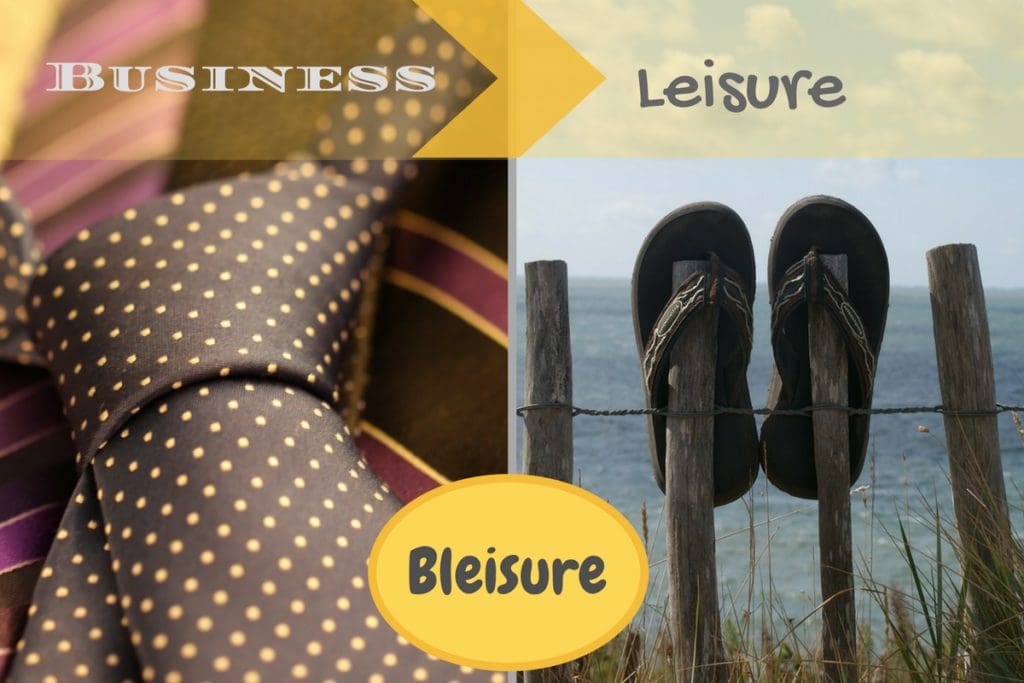 You probably know one. There’s a good chance you are one – or will be in 2018. A bleisure traveler is a person who travels for business purposes but extends their trip for leisure activities. A 2017 study by Luth Research in conjunction with Expedia Media Solutions found that 43 percent of business trips in the U.S. combine business with leisure. Thus, bleisure travel has become mainstream.
You probably know one. There’s a good chance you are one – or will be in 2018. A bleisure traveler is a person who travels for business purposes but extends their trip for leisure activities. A 2017 study by Luth Research in conjunction with Expedia Media Solutions found that 43 percent of business trips in the U.S. combine business with leisure. Thus, bleisure travel has become mainstream.
Who is the Bleisure Traveler?
Of the occupations studied, technology professionals practice bleisure the most frequently, with 25 percent extending work trips for personal reasons. Other occupations in the study included healthcare, accounting, government, manufacturing, education, and research. Each of those came in with 10 percent or fewer bleisure travelers.
Bleisure travelers also tend to be frequent travelers. 70 percent travel for business at least once per quarter, usually for two or three nights at a time. On domestic trips, 42 percent add leisure to business travel, and on international trips, 52 percent do so.
The business function of bleisure travelers is most often (43%) a conference or convention. Client meetings (34%) and team building (24%) are also common reasons for the business trip. Nearly three-quarters of bleisure travelers stay in the same city and 85 percent stay in the same hotel for their leisure extension.
Factors that Influence the Bleisure Traveler
67% of business travelers say they want the ability to lengthen a business trip to include a mini vacation, but they cited specific reasons that encourage or dissuade them from doing so.
Trip length – The study showed that the longer the business trip, the more likely travelers are to add a leisure component. When business trips are at least three days long, the traveler is 30 percent more likely to extend it for personal travel.
Cost savings – Saving money is also important to the bleisure traveler. Typically, the expense of a personal extension of a business trip is born by the traveler, not the company, so 59 percent of travelers said that the extra cost to do so influences their decision. Specifically, the cost of extra hotel nights is a factor. At the same time, a full 66 percent of respondents said that they are willing to spend more on leisure activities because the company paid for the travel to get there.
Special events – If a special event in a destination coincides with the business trip, a third of the study responded that would sway them to extend their trip as a bleisure traveler. And a full 54 percent said that they actually plan their business trip around a leisure event such as a cultural event, spectator sports, music concerts or a play.
How close the work days are to the weekend and how exciting they deem the destination also influences the decision to extend the trip.
Top Bleisure Travel Cities
Naturally, cities with desirable sightseeing are a greater draw (85%) to bleisure travelers. Other activities that appeal to the bleisure traveler include beaches (63%), food scene/restaurants (57%), weather (52%), museums and art (49%), and sports teams (45%). Major cities rank the highest, but they span the entire U.S. geographically:
| New York City | 67% |
| Seattle | 65% |
| Los Angeles | 64% |
| San Francisco | 63% |
| Chicago | 62% |
| Washington DC | 61% |
| San Diego | 60% |
| Austin | 59% |
| Denver | 59% |
| Atlanta | 58% |
| Philadelphia | 57% |
| Boston | 55% |
| Dallas | 54% |
| Nashville | 53% |
| San Antonio | 52% |
As a business traveler, you may not be aware that Covington Travel has a full leisure travel division, with destination experts who have personally “been there, done that.” If you are considering joining the growing ranks of bleisure travelers, let your Covington advisor know and we will help you make the most out of your next trip.


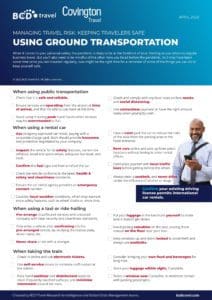
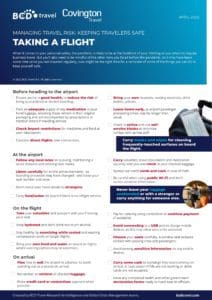
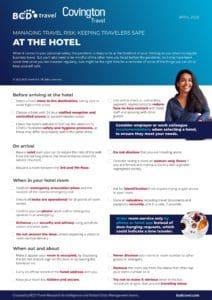
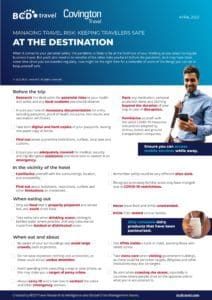
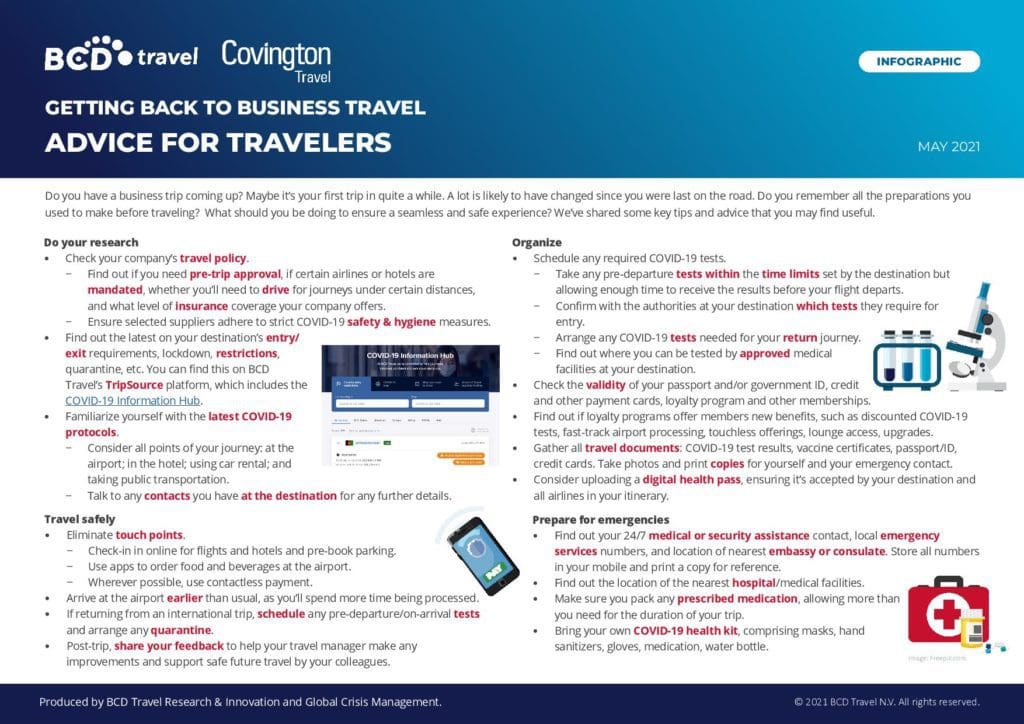
Leave a Reply